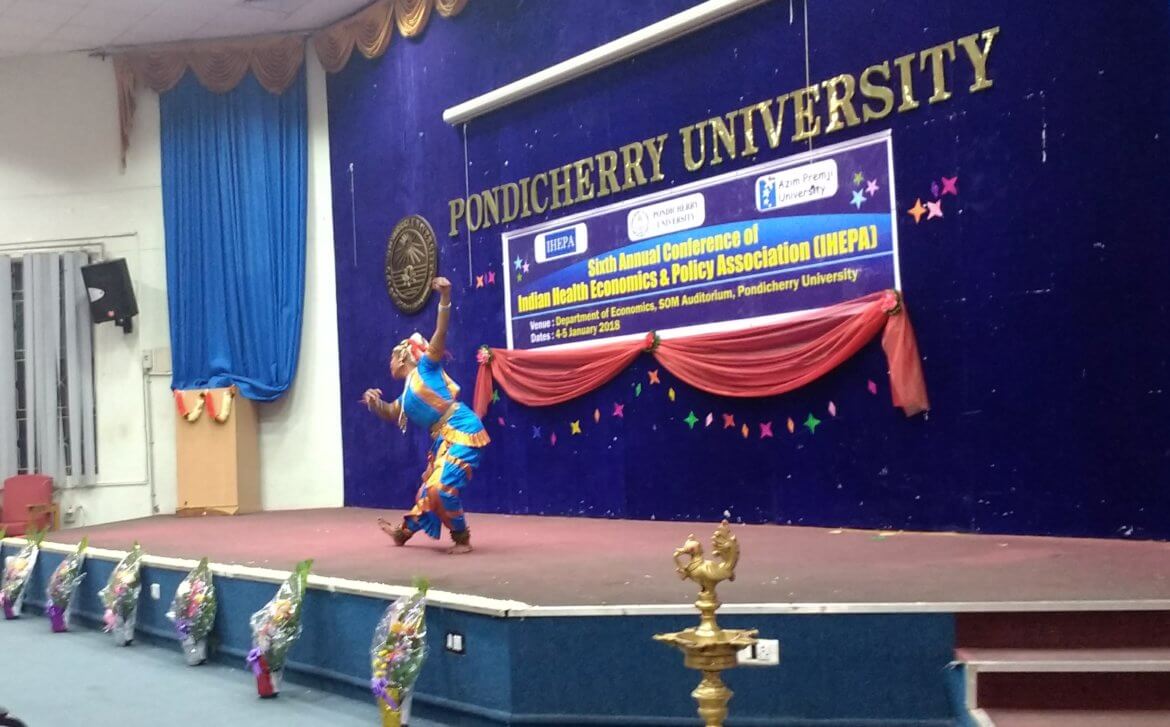This month we attended the 6th annual Indian Health Economics and Policy Association (IHEPA) meeting in Pondicherry to share knowledge on applying economic principles to address key issues within India’s health sector.
At the meeting we both featured on a panel with other leading academics from around the world and discussed the use of cost-effectiveness in the Indian healthcare system.
Issues raised included how out of pocket expenditure and health equity considerations need to be incorporated into relevant, cost-effectiveness analyses in India. We also discussed how best such analyses would be able to influence decision making amongst the mix of providers, funders and decision makers that make up the Indian healthcare system.
The conference held panels that deliberated Universal Health Coverage (UHC), behavioural economics, modelling and cost-effectiveness, with a range of paper discussions by junior scholars. Many of the papers focused on evaluating the impact of healthcare policy on health equity and out of pocket expenditure for healthcare, which emerged as primary concerns in the Indian population.
Discussion beyond formal settings included strengthening health economics capacity in India; and the political economy of health research. The need for academics to engage more actively with health policy-making at a time when India considers its route to UHC was highlighted.
Before the conference we met with Dr V R Muraleedharan, Professor of Economics, from the Indian Institute of Technology in Madras, who has worked closely with the Government of Tamilnadu to shape the south-Indian state’s public health system. We had interesting discussions about the importance of combining theoretical results with implementation research; and how what appears cost-effective on paper may not be possible to implement given local resource and other constraints.
Dr Muraleedharan gave us a masterclass in the Tamil Nadu health system and evidence of how well the free to access government health facilities were doing at local level; and shared details of the Tamilnadu government’s efforts to strengthen primary care at its point of first contact – the health sub-centre.
